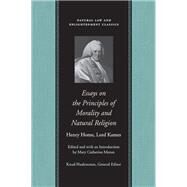Essays On The Principles Of Morality And Natural Religion
, by Kames, Henry Home- ISBN: 9780865974494 | 0865974497
- Cover: Paperback
- Copyright: 3/1/2005
The Essaysis commonly considered Kames's most important philosophical work. In the first part, he sets forth the principles and foundations of morality and justice, attacking Hume's moral skepticism and addressing the controversial issue of the freedom of human will. In the second part, Kames focuses on questions of metaphysics and epistemology to offer a natural theology in which the authority of the external senses is an important basis for belief in the Deity. Like Shaftesbury, Hutcheson, and Butler, Kames rejected the idea that morality is founded on self-interest and argued that human beings naturally possess a "moral sense," or conscience. At the same time, Kames believed our naturally benevolent inclinations could become law-like only through the principle of justice, which "guards the persons, the property, and the reputation of individuals, and gives authority to promises and covenants." He also sought to counter the epistemological skepticism of Berkeley and Hume, insisting that our sense perceptions must be trustworthy because they have been designed for us by a benevolent Deity. "In its concern to vindicate the veracity of our common moral intuitions and sense perceptions that are rooted in our very nature," Mary Catherine Moran writes, "the Essays on the Principles of Morality and Natural Religionhelped found the Scottish Common Sense school," a philosophy that was given its classic formulation by Kames's friend Thomas Reid. The text of this volume is based on the third edition of 1779, while the appendix presents substantial variant readings in the first and second editions.. Henry Home, Lord Kames(1696-1782), one of the leaders of the Scottish Enlightenment, was a judge in the supreme courts of Scotland and wrote extensively on morals, religion, education, aesthetics, history, political economy, and law, including natural law. His most distinctive contribution came through his works on the nature of law, where he sought to combine a philosophical approach with an empirical history of legal evolution. Mary Catherine Morantaught in the Department of History at Columbia University. Knud Haakonssenis Professor of Intellectual History and Director of the Centre for Intellectual History at the University of Sussex, England.







